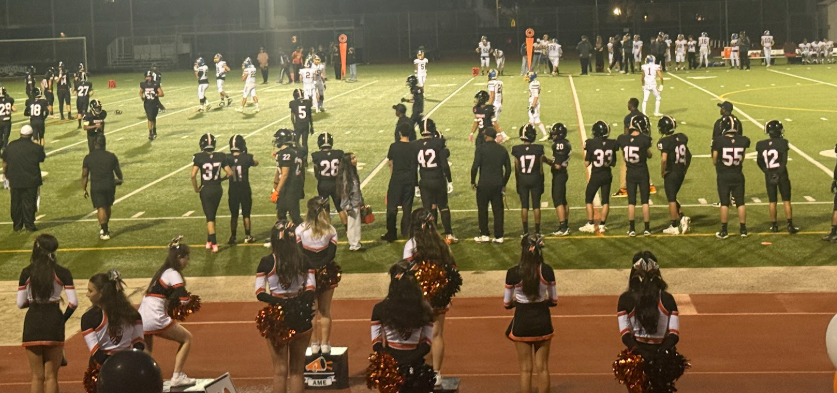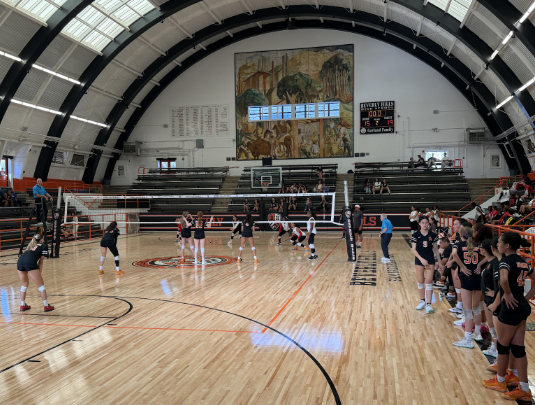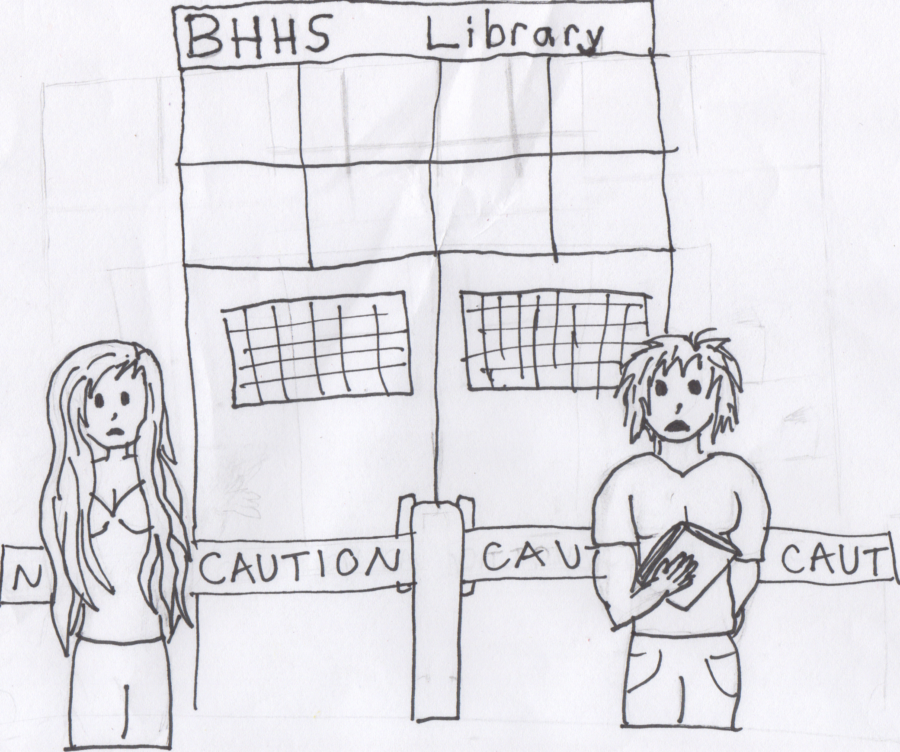Juliette Deutsch, social media director
“Over the weekend I walked into Urban Outfitters and saw a girl pick up a grey t-shirt that had the Eat Less graphic on it. The girl was normal looking and the shirt said ‘Eat Less.’ I was nauseated by the thought of a girl thinking that she needs to buy a shirt to remind her to eat less, or that she needs to flaunt to the world that she is eating less to make her feel as if she is following a fashion trend,” sophomore Elizabeth Del Rosario said.
Urban Outfitters has become a controversial topic in the media since it released a T-shirt printed with the words “Eat Less” in December. The shirts, tight-fitting and available only in sizes small and extra small, promote a certain body image among young women. Women today are heavily influenced by celebrities and personalities on social media, television and magazines, who seem to have perfect bodies. Urban Outfitters has only added to that pressure with its Eat Less shirts, intensifying an already present risk of depression and other mental health issues.
According to The National Association Of Anorexia and Associated Disorders, 50 percent of women meet the criteria to be diagnosed with anorexia and depression. In addition, eating disorders including anorexia, bulimia and binge eating have the highest mortality rates among mental illnesses. When a popular store like Urban Outfitters designs a shirt that encourages young women to diet in unhealthy ways and implies that only one body image is acceptable, these rates could rise and result in more women being diagnosed with anorexia.
“This shirt further promotes young women to risk their lives just to fit into this shirt or have a thigh gap, which is not the definition of having a healthy body,” Del Rosario said.
With the prevalence of anorexia in popular culture, young women are missing sight of what it means to be healthy.
“I strongly believe that this ‘Eat Less’ shirt leads to many young women being diagnosed with depression. To start off, the shirt only comes in two sizes (extra small and small) and that alone would make girls feel self-conscious and want to change their image,” sophomore Maggie Curtis said.
When the shirt was released into Urban Outfitters stores, actress Sophia Bush issued a statement to Urban Outfitters expressing her opinion on the T-shirt.
“Urban Outfitters should issue a public apology and make a hefty donation to a women’s organization that supports those stricken with eating disorders. I am sickened that anyone, on any board, in your gigantic company would have voted ‘yes’ on such a thing, let alone enough of you to manufacture an item with such a hurtful message. It’s like handing a suicidal person a loaded gun. They should know better,” Bush said.
Bush is a strong promoter of healthy body images for women worldwide. Along with her philanthropic contributions, Bush has created a campaign to stop Urban Outfitters production of the “Eat Less” T-shirt by launching a campaign named “Zero Is Not A Size.” Bush has designed a shirt for the campaign with the phrase “Zero Is Not A Size” written on it. All of the proceeds are donated to organizations that help women who suffer from anorexia and associated disorders.
The Eat Less shirt definitely has a hurtful connotation behind it and Urban Outfitters should issue a public apology regarding the shirt.
This is not Urban Outfitters` first t-shirt controversy, though. The store was caught selling another t-shirt in a color option of “Obama Black.” After getting caught, the retailer called the color description an error. After creating racist names for shirt colors and promoting anorexia, Urban Outfitters needs to issue a public apology regarding the merchandise in question.
The “Eat Less” t-shirt is tasteless and promotes an unhealthy dietary message. There is not one woman who has a perfect body. It is horrible to encourage women to fit a certain body type when we are all created differently and have unique qualities.
Urban Outfitters has not yet made a public comment about the “Eat Less” t-shirt controversy.
































